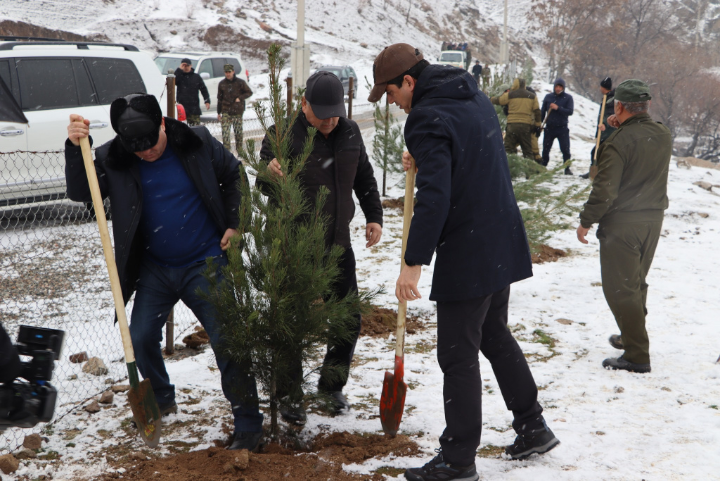Campaign for planting seedlings in the Romit Biosphere Reserve
On the initiative of the Committee for Environmental Protection under the Government of the Republic of Tajikistan, based on the instructions and guidance of the Founder of Peace and National Unity - Leader of the Nation, President of the Republic of Tajikistan, respected Emomali Rahmon, tree planting, and landscaping campaigns continue in the cities and regions of the republic.
As a result of such actions, on February 3, 2024, a landscaping campaign was carried out in the ecosystems of the Romit Biosphere Reserve. As part of the event, more than 1,000 seedlings of fruit-bearing, shady, and ornamental trees were planted.
Protection and conservation of specially protected natural areas, especially the natural state of characteristic ecosystems, habitats of rare wildlife, and prevention of degradation of natural ecosystems, are priority areas of activity of environmental protection authorities. The event was directly attended by the Chairman of the Committee for Environmental Protection under the Government of the Republic of Tajikistan, Sheralizoda Bahodur Ahmadjon, and the Chairman of the city of Vakhdat, Ismoilzoda Mirzo Ibrokhim.
Also, employees of the State Institution “Specially Protected Natural Areas”, the environmental protection department in the city of Vahdat, and local residents took an active part in the campaign for planting seedlings and contributed to improving the state of the environment in this corner of the picturesque nature of our country.
It should be noted that the planted seedlings of fruit, shady, and ornamental trees, including pine, ailan, thuika, and steppe plum, are suitable for the climate of the area and were planted in compliance with agrotechnical requirements.
As part of this event, the Chairman of the Committee for Environmental Protection under the Government of the Republic of Tajikistan and the Chairman of the city of Vakhdat visited the partridge nursery and gave specific instructions to industry representatives to regularly carry out biotechnical activities and, thus, take measures to protect rare animals and birds from loss in cold winter weather months.
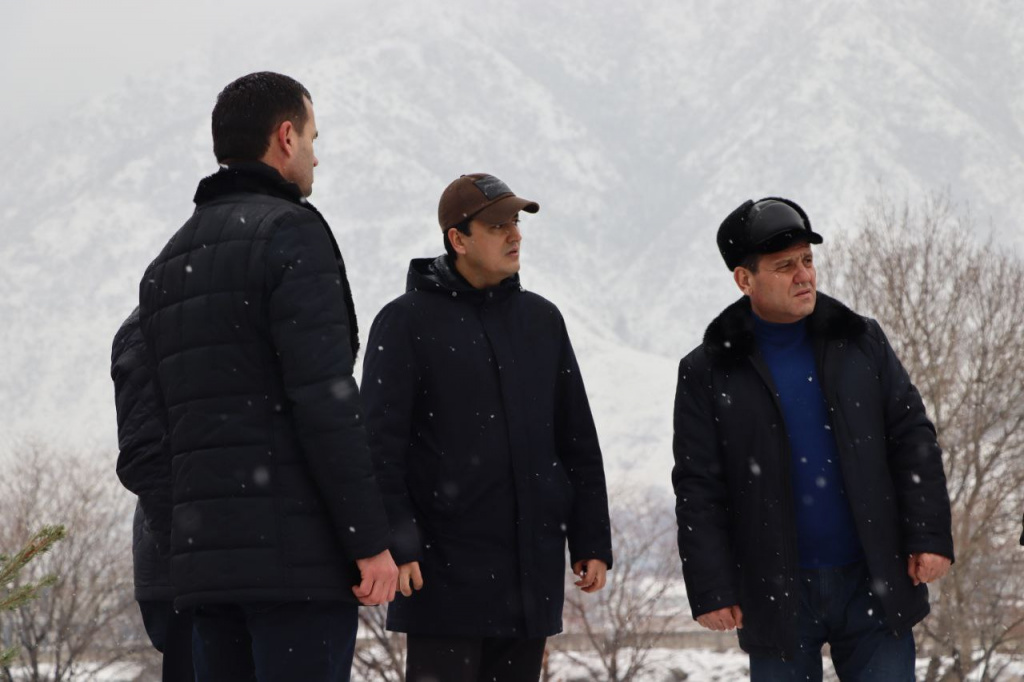
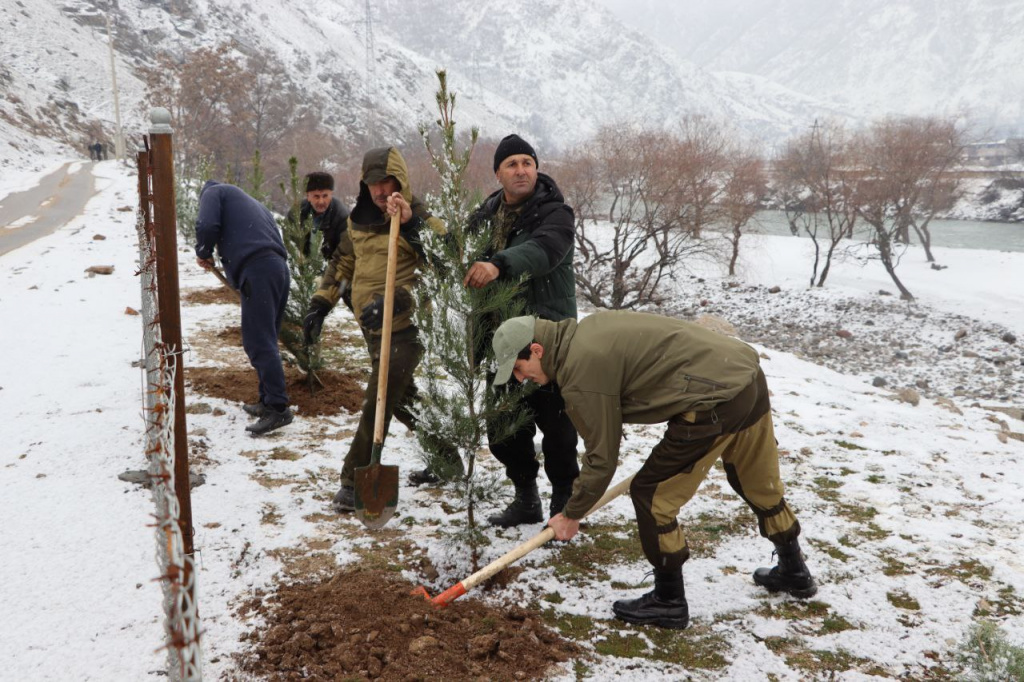
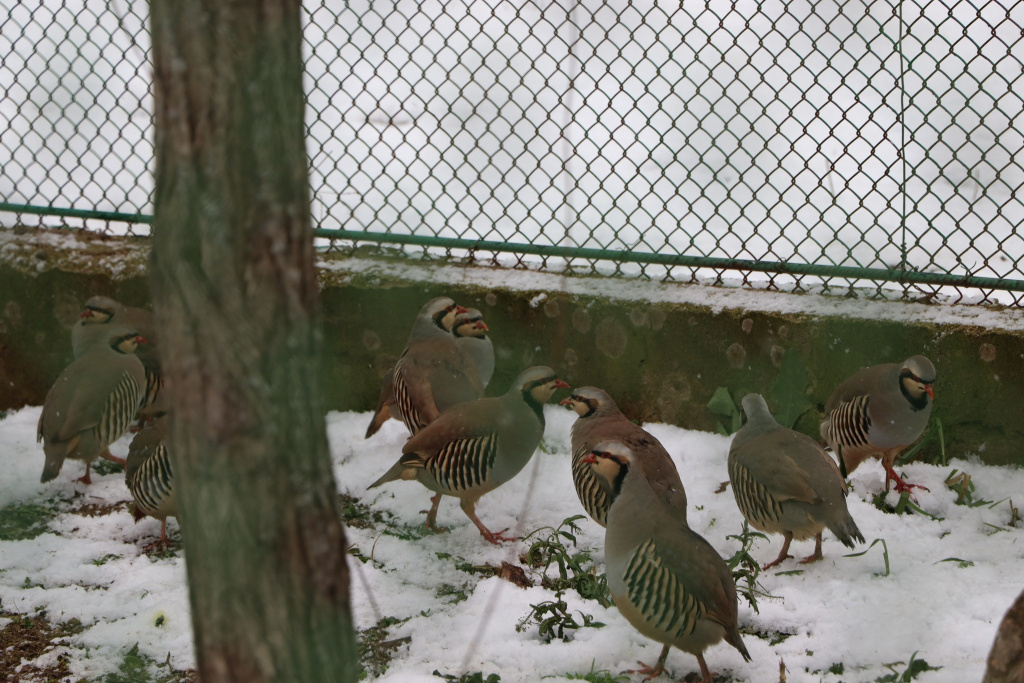
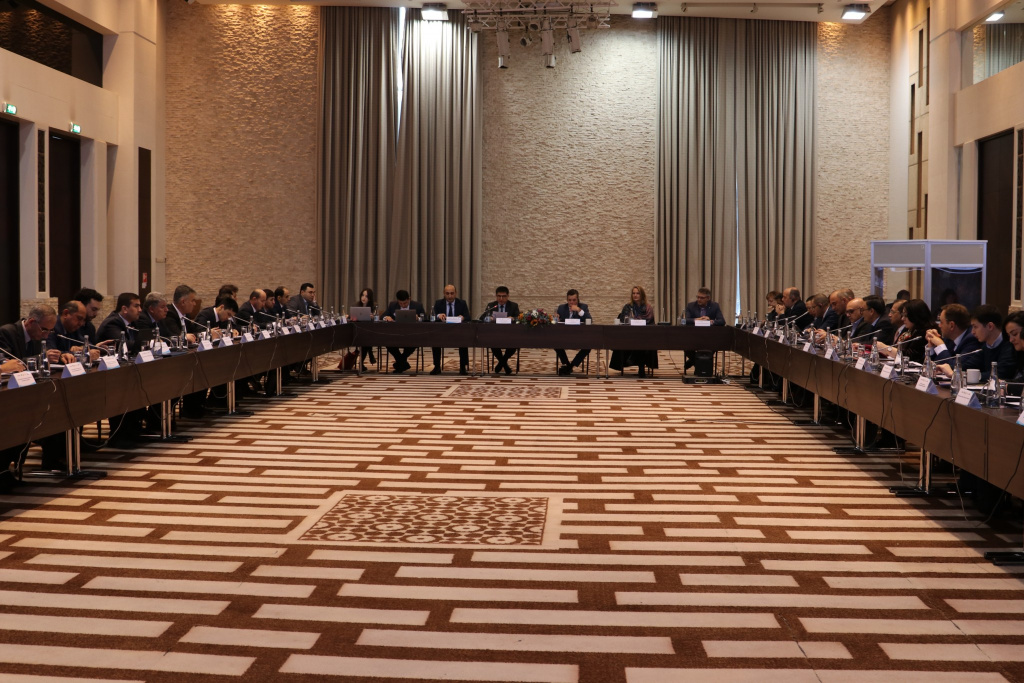

.png)
.png)
